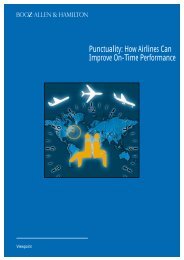The sentence
The sentence
The sentence
Create successful ePaper yourself
Turn your PDF publications into a flip-book with our unique Google optimized e-Paper software.
3. We don’t normally use quotation marks with verbs like think and wonder:<br />
So that was their little game, he thought. What hasn’t she written, he wondered.<br />
B. ‘Say’, ‘tell’ and ‘ask’<br />
‘Say’, ‘tell’, and ‘ask’<br />
1. <strong>The</strong> commonest reporting verbs in both direct and indirect speech are: say, tell and ask.<br />
2. We must always use a present indirect object after tell (tell somebody …):<br />
He told me he was tired. (Not *told me*) John told his mother he was going out.<br />
We can use to me, etc. after say if we want to, but we can’t say *He said me*:<br />
‘You haven’t got much time,’ he said (to me). or: … he told me. Not said me/he told*<br />
3. We can use me, etc. after ask if we want to: ‘Are you comfortable?’ he asked (me).<br />
Fixed expressions with ‘say’, ‘tell’ and ‘ask’<br />
<strong>The</strong>re are many common expressions with say, tell and ask, for example:<br />
say: say a few words , say so, say no more, say nothing, say your prayers<br />
tell: tell a lie, tell a story, tell you so, tell the time, tell the truth<br />
ask: ask after someone, ask (for) a favour, ask a question, ask the price<br />
Indirect statements with the reporting verb in the present<br />
1. If the reporting verb is in the present, the tenses that follow are usually the same as<br />
those used in the original spoken statement. This is often the case when we report words<br />
that have just been spoken. That is optional after say and tell:<br />
Someone says: ‘I’ve eaten.’ And we report it as: He says (that) he has eaten.<br />
Someone says: ‘I enjoyed it.’ And we report it as: He says (that) he enjoyed it.<br />
2. <strong>The</strong> reporting verb is often in the present when:<br />
- we are passing on messages: ‘What does mother say?’ ‘She says you must come I now.’<br />
- reading aloud and reporting: ‘<strong>The</strong> instructions say that you connect this plug to the set.’<br />
- reporting what someone often says: ‘She’s always telling me how rich she is.’<br />
C. Indirect statements with tense changes<br />
Common indirect speech forms<br />
We tend to use past tenses in indirect speech because we are reporting past events, so we<br />
use the past tense of reporting verbs (he said (that) … he told me (that)). How we report is a<br />
matter of common sense and we can mix tenses if we want to. We can say:<br />
Jim says he’s read Tony’s book and didn’t understand it. (= then, when he read it)<br />
Jim said he’d read Tony’s book and doesn’t understand it. (= now), etc.<br />
But what commonly happens is that present attracts present and past attracts past, so we<br />
would probably say: Jim said he’d read Tony’s book and didn’t understand it.<br />
We move the reported clauses ‘one tense back’. A useful general rule is:<br />
‘present becomes past and past becomes past perfect’.<br />
94




